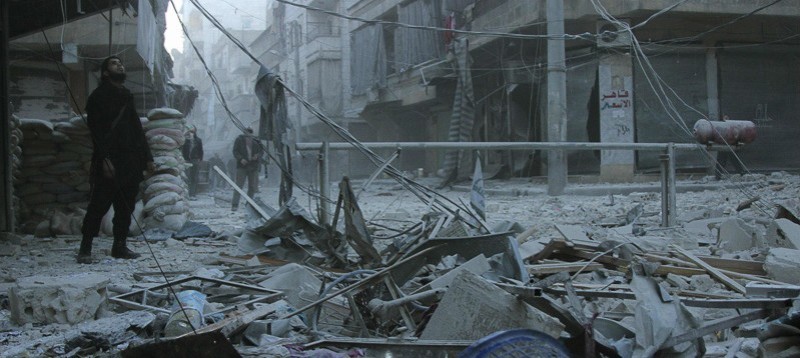
About 2 million residents in Aleppo are without running water and electricity, as the incessant fighting in the city has damaged infrastructure including electrical lines and water pumps, the United Nations said in a press release.
UN Emergency Relief Coordinator Stephen O'Brien urged the fighting groups to allow for a ceasefire or weekly 48-hour humanitarian pause for humanitarian aid to be delivered and for infrastructure to be repaired.
"We have supplies ready to roll: food rations, hospital supplies, ambulances, fuel for generators, water supplies and more," said O'Brien. "We can deliver these within 24 to 48 hours if we have safe access."
A statement released by the UN said that the organization was "extremely concerned" for the millions of civilians stuck in the city besieged by war.
"The UN stands ready to assist the civilian population of Aleppo, a city now united in its suffering. At a minimum, the UN requires a full-fledged ceasefire or weekly 48-hour humanitarian pauses to reach the millions of people in need throughout Aleppo and replenish the food and medicine stocks, which are running dangerously low," it said.
The ongoing fighting can take a significant toll on young children, who are vulnerable to water-borne diseases, according to the UN Children's Fund (UNICEF).
"In the eastern parts of Aleppo up to 300,000 people - over a third of them are children - are relying on water from wells which are potentially contaminated by fecal matter and unsafe to drink," said UNICEF.
The delivery of medical supplies to the eastern part of Aleppo city which is under the control of rebels was interrupted due to the fighting, and stocks have not been replenished since July 7.
The hospitals are facing severe shortages of health care workers and facilities, even as more war-related injury patients are admitted to hospitals. Last month 10 attacks were carried out on hospitals. The city health authorities told WHO that 13 out of 28 health care centers, and 8 out of 10 hospitals are now out of service or partially functional.
O'Brien called upon the Council members to restore humanitarian access into the city.
"Fighting must stop everywhere. People, are suffering across the country, in Menbij, eastern Ghouta, Dara'a, to name but a few. Politics must be put aside," said O'Brien. "We must do our duty as fellow human beings, through the privilege we have of serving people under the United Nations flag, to help all those who are now in dire straits."



















